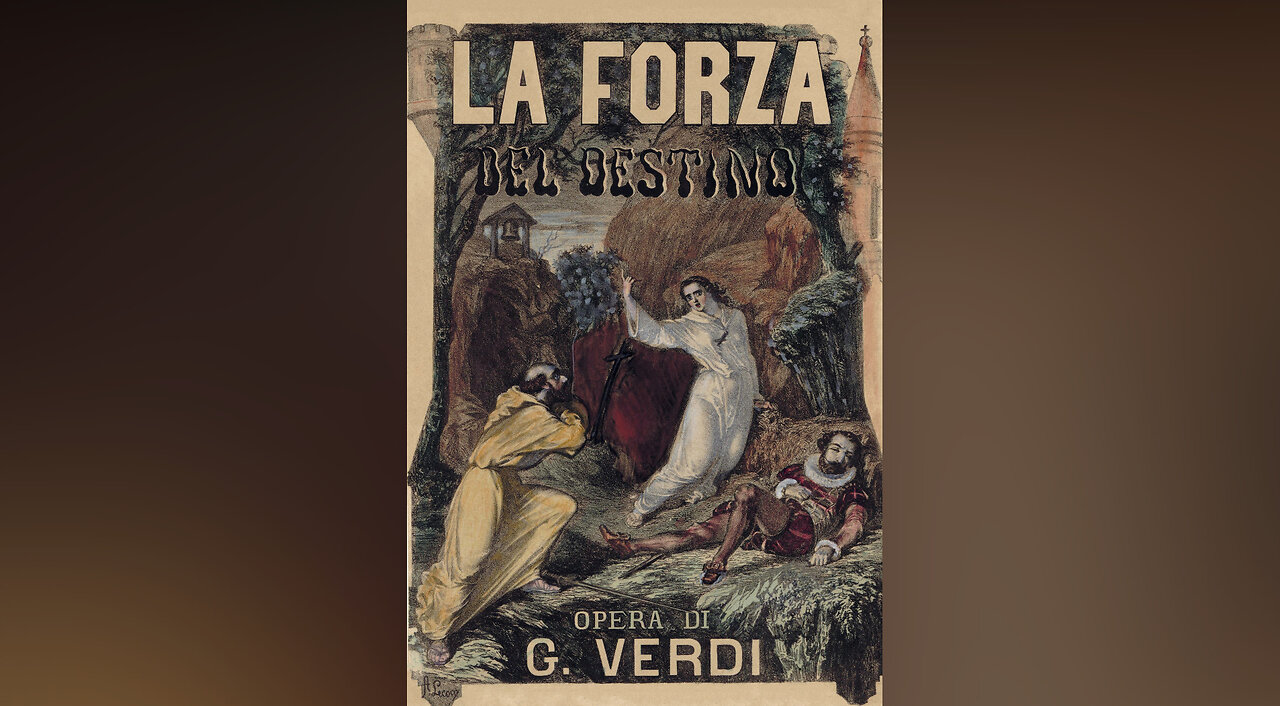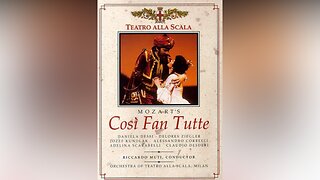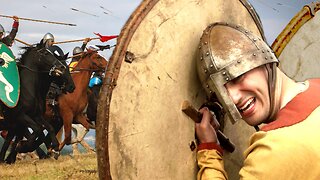Premium Only Content

Verdi - La Forza del Destino Act I-II | Carreras, Caballé (La Scala 1978)
Composer: Giuseppe Verdi
Librettist: Francesco Maria Piave
Premiere: 22 November 1862, St Petersburg (Imperial Bolshoi Theatre)
Language: Italian
Libretto: https://www.opera-arias.com/verdi/la-forza-del-destino/libretto/
Translation: English subtitles
La Forza del Destino (The Power of Fate, often translated The Force of Destiny) is an Italian opera by Giuseppe Verdi. The libretto was written by Francesco Maria Piave based on a Spanish drama, Don Álvaro o la fuerza del sino (1835), by Ángel de Saavedra, 3rd Duke of Rivas, with a scene adapted from Friedrich Schiller's Wallensteins Lager (Wallenstein's Camp). It was first performed in the Bolshoi Kamenny Theatre of Saint Petersburg, Russia, on 29 November 1862 O.S. (N.S. 10 November). La forza del destino is frequently performed, and there have been a number of complete recordings. In addition, the overture (to the revised version of the opera) is part of the standard repertoire for orchestras, often played as the opening piece at concerts.
Cast & Characters:
Giovanni Foiani: Il Marchese di Calatrava
Montserrat Caballé: Donna Leonora
Piero Cappuccilli: Don Carlo di Vargas
José Carreras: Don Alvaro
Maria Luisa Nave: Preziosilla
Nicolai Ghiaurov: Il Padre Guardiano (The Father Superior)
Sesto Bruscantini: Fra Melitone
Mila Zanlari: Curra, Leonora's maid
Giuseppe Morresi: Un alcade
Piero de Palma: Mastro Trabuco
Carlo Meliciani: Un chirurgo
Franco Riccardi: Un rivendugliolo
Orchestra e Coro del Teatro alla Scala
Conductor: Giuseppe Patané
Synopsis - ACT I: A room in the country house of the Marquis of Calatrava
The marquis bids his daughter Leonora an affectionate goodnight, assuring her that the country air will help her to forget the unworthy stranger (who has aspired to her hand). Leonora, on the point of eloping with Don Alvaro, the stranger, is seized with remorse, thinking mournfully of her life when parted forever from her country and her family, while her maid Curra tries to encourage her to pack, warning her of the fate which attends Alvaro if she were to yield to the temptation of confessing to her father. When Alvaro arrives, she is still reluctant to leave, asking him to delay by one day, so she can see her father again; but when Alvaro accuses her of not loving him, she responds to his passion and prepares to elope. But they are surprised by the Marquis and servants. Swearing that Leonora is pure, Alvaro offers his breast to the Marquis, who disdains to kill one he considers beneath him. Alvaro throws his pistol to the floor and it goes off, killing the Marquis, who dies cursing his daughter. Leonora and Alvaro flee.
ACT II
Scene 1. The inn of the village of Hornachuelos
Arriving at the inn disguised as a man, Leonora hides when she sees her brother, Don Carlo, among the crowd waiting for supper. Don Carlo, disguised as a student, begins to interrogate the muleteer Trabuco about the identity of the person he brought to the inn (Leonora), but is interrupted by the arrival of the gipsy Preziosilla on her way to join the Spanish army fighting in Italy. After a rousing call to arms, she offers to tell fortunes, and sees misfortune in Carlo's hand, and also makes it clear that she knows he is not what he says he is. A procession of pilgrims passes on its way to the monastery of Hornachuelos and the company joins in the prayer. Carlo continues to question Trabuco about the sex of the traveller, and even suggests painting a moustache on his face as he sleeps, until restrained by the mayor, who asks him to account for himself. His name is Pereda, he answers, a student from Salamanca, who had accompanied his friend Don Carlo di Vargas in search of his sister and her foreign lover who had killed their father; Carlo has gone to (South) America and he will return to his studies. All go to bed.
Scene 2. Outside the monastery of Hornachuelos in the mountains
Leonora reaches her goal, the monastery, terrified to have recognised her brother and heard him tell her story. She also heard him say that Don Alvaro, whom she had thought killed in the confusion on the night of the failed elopement, is alive and has gone to South America; and believes that he has deserted her. She rings the bell and manages to convince the reluctant porter, brother Melitone, of her urgent need to see the Padre Guardiano.To the Padre Guardiano she reveals her identity. She had been sent to him by her confessor, as she wishes to follow the example of another woman and live as a hermit in a cave not far from the monastery. After some reluctance, he consents and calls the monks to prayer, to give her his blessing and state to her and the brothers (who do not know she is a woman) the conditions of her future life: she is to see no one and remain undisturbed; he will leave food for her and only in extreme danger or at the hour of her death is she to ring a bell to summon him.
-
 1:32:14
1:32:14
Adaneth - Arts & Literature
6 days agoMozart: Così fan tutte Act 1 | Dessi, Ziegler, Corbelli, Kundlak - Muti (La Scala 1989-ENG+ITA SUB)
29 -
 1:17:59
1:17:59
Sarah Westall
4 hours agoDOGE: Crime & Hysteria bringing the Critics & the Fearful - Plus new CDC/Ukraine Crime w/ Dr Fleming
10.1K2 -
 45:39
45:39
Survive History
9 hours ago $0.33 earnedCould You Survive in the Shield Wall at the Battle of Hastings?
6.49K5 -
 1:50:28
1:50:28
TheDozenPodcast
8 hours agoViolence, Abuse, Jail, Reform: Michael Maisey
13.4K1 -
 23:01
23:01
Mrgunsngear
1 day ago $2.94 earnedWolfpack Armory AW15 MK5 AR-15 Review 🇺🇸
29.3K12 -
 25:59
25:59
TampaAerialMedia
1 day ago $0.72 earnedUpdate ANNA MARIA ISLAND 2025
22.3K1 -
 59:31
59:31
Squaring The Circle, A Randall Carlson Podcast
10 hours ago#039: How Politics & War, Art & Science Shape Our World; A Cultural Commentary From Randall Carlson
10.4K2 -
 13:21
13:21
Misha Petrov
10 hours agoThe CRINGIEST Thing I Have Ever Seen…
9.2K36 -
 11:45
11:45
BIG NEM
6 hours agoWe Blind Taste Tested the Best Jollof in Toronto 🇳🇬🇬🇭
5.02K -
 15:40
15:40
Fit'n Fire
10 hours ago $0.13 earnedArsenal SLR106f & LiteRaider AK Handguard from 1791 Industries
4.23K1